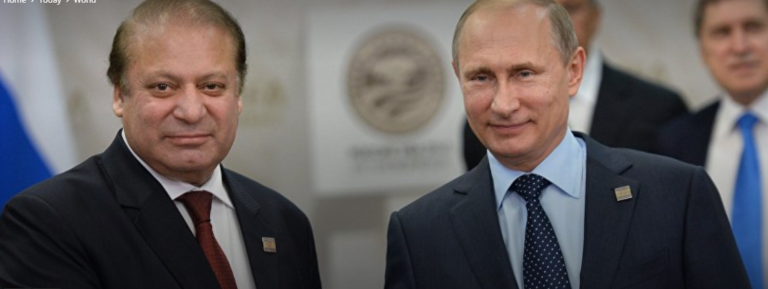Days after the Indian media reported that Russia assured New Delhi that it would cancel the ‘Druzhba-2016’ tactical exercises with Pakistan (in the wake of the terror attack that killed 19 Indian soldiers at an Army camp in Kashmir’s Uri District on September 18), the first ever joint military exercise between the two countries began in Gilgit Baltistan on Saturday.
The Russian state-run media confirmed that the opening ceremony took place at an Army school in Rattu in Gilgit-Baltistan in Pakistan-occupied-Kashmir (PoK). According to the state media, around 200 Russian and Pakistani troops are participating in the two-week military drill. Describing the manoeuvre as a sign of growing defence ties between the two former Cold War rivals, the Russian media reported that the armed forces of the two countries are conducting the drills in “mountainous areas”.
Meanwhile, the concerned Russian authorities have asked India not to worry about the joint drills. On Friday, RIA Novosti quoted Director (Second Asian Department) of the Russian Foreign Ministry Zamir Kabulov as saying: “We were informed by the Russian Defence Ministry that these exercises will not be carried out in disputed areas (read PoK), and a place was chosen that has nothing to do with this. Hence there is no reason for India to worry about it.” Kabulov made the statement immediately after the Russian military personnel arrived in Pakistan for taking part in the drills.
The Pakistani Embassy in Moscow stressed: “The objectives of the joint exercise include developing co-operation between ground forces of the two countries, improving tactical abilities of the participating military personnel and developing a foundation for future interactions.”
Defence analysts presuppose that Pakistan is trying to improve its ties with Russia as its ties with the US (considered as Islamabad’s long-term ally) seem to be cooling. They believe that warm ties with Moscow will help Islamabad diversify its options in case of any friction with Washington. Relations between Pakistan and the US soured after some American lawmakers recently blocked the sale of eight F-16 fighter jets to the South Asian country.
As a global strategic realignment is currently underway, India has started monitoring Russia-Pakistan ties “closely”. Some Indian foreign policy experts opine that the ‘Friendship Exercise’ is a big blow for New Delhi, which is trying to isolate Pakistan globally (for sponsoring terror). Others are of the opinion that the Indian government must refrain from knee-jerk reactions, as the foundation of Indo-Russia relations lies in the 1971 Indo-Soviet Treaty of Friendship. They believe that India-Russia co-operation will remain strong, despite increasing high-level interactions between Moscow and Islamabad. However, experts have admitted that the realignment has brought Pakistan, China and Russia closer to each other. They have also advised the Narendra Modi administration to consider the joint drills as a natural part of diplomacy.
“There may be a growing recognition on the part of Moscow of the need to diversify its strategic interests in South Asia, especially in light of New Delhi’s moves towards Washington. Now if India is uncomfortable by the growing Russia-Pakistan relationship, particularly in the context of its fresh efforts to isolate Pakistan as a sponsor of terrorism, then it should have taken appropriate diplomatic steps to dissuade Moscow from moving closer to Islamabad,” stressed Rudroneel Ghosh, a Delhi-based expert and veteran media person. According to Ghosh, “we have to wait and see whether current circumstances will lead to the creation of a China-Pakistan-Russia triumvirate”.

